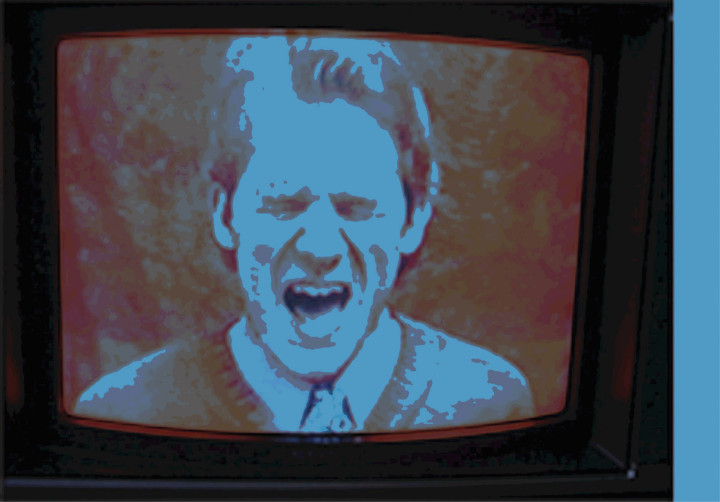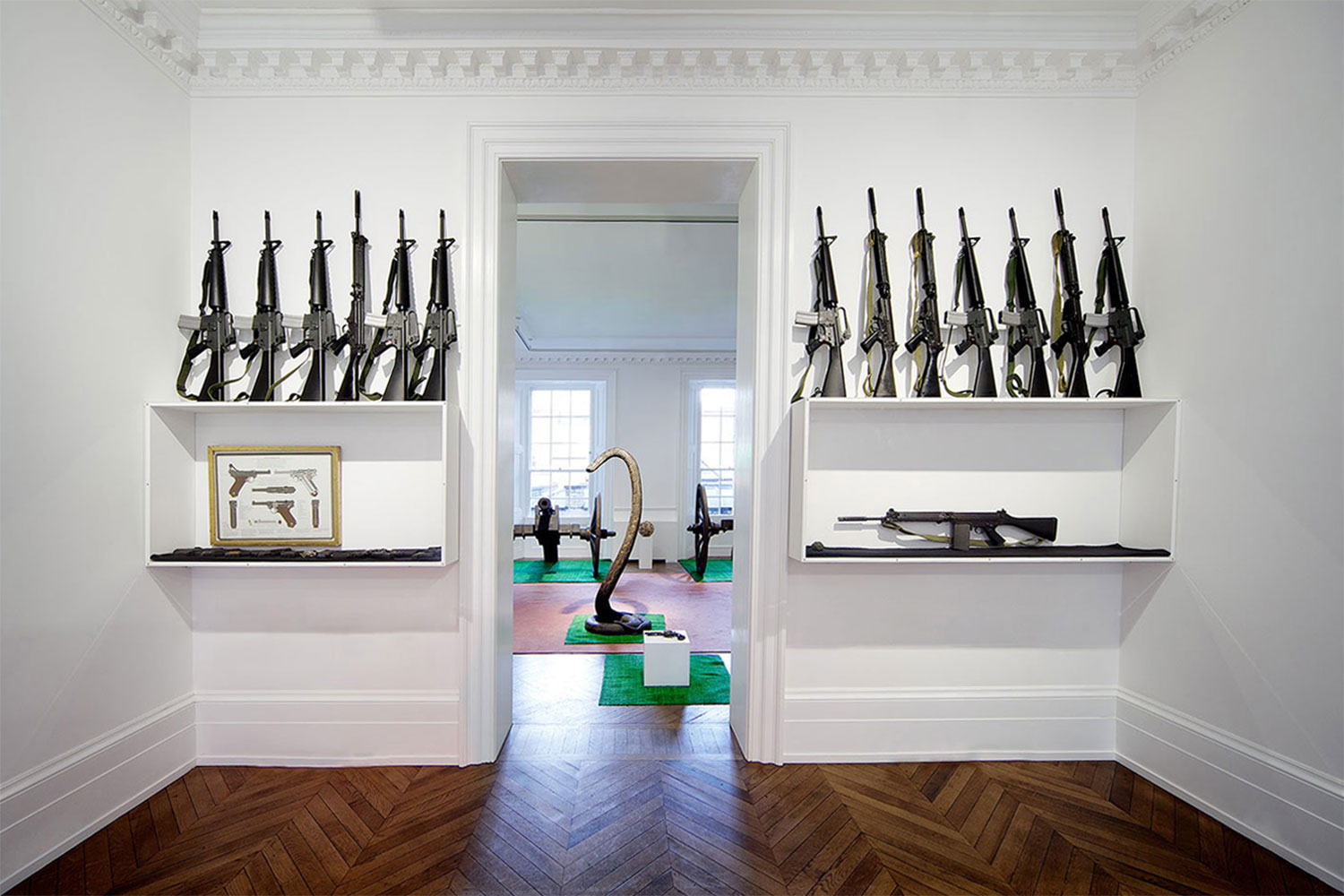
Michael Polsinelli: Your film projection Speech Bubble (2008) was inspired by the bankruptcy of the Belgian high-tech speech recognition company Lernout & Hauspie. You appear as a lonely suited figure engaging in a strange, elliptical exchange with a female voice. At moments, corporate speak prompts what seem like automatic word associations that lead to lucid, even affectionate moments between yourself and the woman, while at others, any lingering passion is suspended with a back-to-business comment like “bank account number please.” How did you formulate the script for this film?
Adam Leech: The script was written like a song. It was more composed than written. I see the main character as someone who must express the entire experience of bankruptcy — ranging from personal to socio-economic — and he must do this with the pathological optimism that often exists in high-tech ventures. Also, this character is not so different from myself. I often sing little songs and repeat funny words. It’s a way to humor myself while I am alone.
MP: That sense of loneliness is strong throughout your work. In Imaging and Diagnostics you narrate how you moved to Europe from America, having graduated from art school, and took a job in a call center to earn cash. You persevere with the job but there is always an undercurrent of longing for something else. How does your personal experience relate to the themes of your work?
AL: I once made a work called Do you love me? (2000). In this video I repeatedly asked people if they loved me and then I would lip-sync their answers. The piece is uncanny and humorous as a performance… but indeed there is an undercurrent of longing. It is a longing that compels me to create… but I want to entertain and charm my audience at the same time. Some of my previous works were motivated by personal experiences but I think that was more of a crutch than a tool. My next video, which will be in the form of a public apology, will be a comedy about regret and guilt…

MP: Perhaps part of that charm comes from the tone of your voice in the films. It tints the whole situation with a humorous defiance…
AL: People tell me I have a soothing voice. I use my voice as a way to seduce people and invite them into my world. My wife Eva also has a great voice; she is a speech pathologist and has a great understanding of pronunciation and rhythm — her voice is deep and mellow; robotic and empathetic.
MP: How do you negotiate the relationship between the visuals and the stories and sounds of your films?
AL: The visuals are becoming more important… but they will always be simply an element to represent the condition of the protagonist. I am also a painter and have a painterly approach to visual construction as opposed to a filmic one.
MP: As an artist predominantly known for your films, can you explain what this ‘painterly approach’ means?
AL: In my case a painterly approach means the image is a ‘self contained generator of experience’… this is different from your average narrative film where images are not self contained; they are sequential and depend on each other for meaning. This is why most of my films have no editing — it’ s a way to maintain one image that can generate meaning. If there is editing in my films it is done in the mind of the protagonist.
MP: So, aside from the public apology, what’s next for Adam Leech?
AL: Speech Bubble has grown from one video into three. The second one, as you said, will come in the form of public apology for decadence, and the third will be about cleaning up messes!





